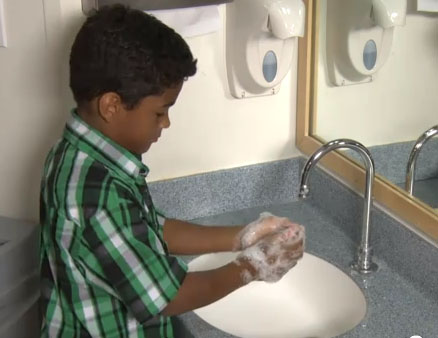There’s so much to do during the summer and many opportunities for illness or injury. Typical summertime activities like swimming and biking come with unique risks, and summertime heat itself can be dangerous.
Here are some tips to avoid heat-related illnesses — while still enjoying everything summertime has to offer.
How to Stay Healthy, Safe, and Cool this Summer
St. Louis summers are notorious for extreme heat and humidity — a potentially dangerous combination. To prevent heat-related illnesses this summer, follow these tips from the U.S. Centers for Disease Control and Prevention (CDC):
Wear appropriate clothing
- Choose lightweight, light-colored, loose-fitting clothing.
Stay cool indoors
- Stay in an air-conditioned place as much as possible.
- If your home doesn’t have air conditioning, go to the shopping mall or public library — even a few hours spent in air conditioning can help your body stay cooler when you go back into the heat.
- Call your local health department to see if there are any heat-relief shelters in your area.
- Electric fans may provide comfort, but they won’t prevent heat-related illness when the temperature is in the high 90s.
- Taking a cool shower or bath or going to an air-conditioned place is a much better way to cool off.
- Use your stove and oven less to maintain a cooler temperature in your home.
Schedule outdoor activities carefully
- Try to limit your outdoor activity to when it’s coolest, like morning and evening hours.
- Rest often in shady areas so that your body has a chance to recover.
Pace yourself
- Cut down on exercise during the heat. If you’re not accustomed to working or exercising in a hot environment, start slowly and pick up the pace gradually.
- If exertion in the heat makes your heart pound and leaves you gasping for breath, stop all activity. Get to a cool area or into the shade, and rest, especially if you become lightheaded, confused, weak or faint.
Do not leave children (or pets) in cars
- Cars can quickly heat up to dangerous temperatures, even with a window cracked open.
- While anyone left in a parked car is at risk, children are especially at risk of getting a heat stroke or dying.
- When traveling with children, remember to do the following:
- Never leave infants, children or pets in a parked car, even if the windows are cracked open.
- To remind yourself that a child is in the car, keep a stuffed animal in the car seat. When the child is buckled in, place the stuffed animal in the front with the driver as a visual cue.
- When leaving your car, check to be sure everyone is out of the car. Do not overlook any children who have fallen asleep in the car.
Stay hydrated and drink plenty of fluids
- Drink more fluids, regardless of how active you are. Don’t wait until you’re thirsty to drink.
- If your doctor limits the amount you drink or has you on water pills, ask how much you should drink while the weather is hot.
- Stay away from very sugary or alcoholic drinks — these cause you to lose more body fluid. Also avoid very cold drinks because they can cause stomach cramps.
- Keep your pets hydrated too, by providing plenty of fresh water in a shady area.
Replace salt and minerals
- Heavy sweating removes salt and minerals from the body that need to be replaced. A sports drink can replace the salt and minerals you lose in sweat.
- If you are on a low-salt diet, have diabetes, high blood pressure or other chronic conditions, talk with your doctor before drinking a sports beverage or taking salt tablets.
Stay informed and check for updates
- Check your local news for extreme heat alerts and safety tips and to learn about any cooling shelters in your area.
Use a buddy system
- When working in the heat, monitor the condition of your co-workers and have someone do the same for you.
- Heat-induced illness can cause a person to become confused or lose consciousness.
- If you are age 65 or older, have a friend or relative call to check on you twice a day during a heat wave. If you know someone in this age group, check on them at least twice a day.
Monitor those at high risk
Although anyone at any time can suffer from heat-related illness, some people are at greater risk than others, including:
- Infants and young children
- Adults aged 65 or older
- Those who are overweight
- Those who overexert during work or exercise
- People who are physically ill, especially with heart disease or high blood pressure, or who take certain medications, such as for depression, insomnia, or poor circulation
- Visit adults at risk at least twice a day and closely watch them for signs of heat exhaustion or heat stroke. Infants and young children, of course, need much more frequent monitoring.
See more information from the CDC on recognizing and treating heat-related illnesses such as heat cramps, heat exhaustion, heat stroke, and heat rash.
For treatment of minor summertime illnesses or injuries, visit St. Louis Children’s Hospital’s After Hours Clinics.






Comments